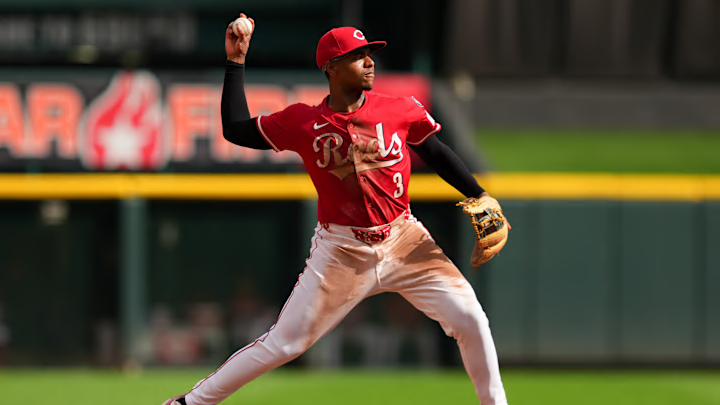Former Pittsburgh Pirates third baseman Ke'Bryan Hayes won the second Gold Glove award of his career in 2025 – but he did it as a member of the Cincinnati Reds.
This is the kind of moment that splits a fanbase down the middle – especially one like Pittsburgh’s, where pride in homegrown players constantly collides with frustration over the organization’s inability to build around them.
On the surface, trading away a two-time Gold Glover looks indefensible for a franchise starving for stability and star power. But when you peel back the layers, the move actually made baseball and organizational sense for where the Pirates were in 2025. Trading Hayes at this year's deadline was ultimately the right decision for Pittsburgh, even if it stings to see him winning awards in Cincinnati.
Your 2025 Rawlings Gold Glove Award Winner - NL Third Base - Ke'Bryan Hayes#RawlingsGoldGloveAwards pic.twitter.com/qtznQoyCqK
— Rawlings Baseball (@RawlingsSports) November 3, 2025
Pirates made the right move trading Ke'Bryan Hayes to Reds, despite Gold Glove finish
By mid-2025, Hayes’ stock was as high as it had been in years. He’d reestablished himself defensively after battling injuries and inconsistency at the plate. His contract (team-friendly extension signed in 2022) made him an extremely valuable trade chip – controllable, affordable and proven. Contenders (or borderline contenders) like the Reds were desperate for elite defense and steady infield play heading into a postseason push.
For the Pirates, who were once again hovering below .500 with glaring holes at third base (long-term), corner outfield and behind the plate, trading Hayes at his maximum value was pragmatic. Waiting another year risked a further decline in performance, a flare-up of recurrent back issues or a regression in trade value – all too familiar outcomes for Pittsburgh.
Hayes is an elite defender, but his bat never fully lived up to its early promise in Pittsburgh. Even in his best full seasons, he struggled with consistency: lots of hard contact, but few barrels and limited power. For a rebuilding team, a glove-first third baseman with modest offensive output isn’t a cornerstone; he’s a complementary piece.
So, while Hayes’ defense made him special, the Pirates’ long-term equation needed impact bats more than another elite glove. His high floor and limited ceiling were better suited to a team like Cincinnati, already built to contend.
While Hayes’ contract wasn’t massive (eight years, $70 million), it was one of the few long-term deals on Pittsburgh’s books. Trading him cleared salary room for arbitration raises and created flexibility to pursue external updates at corner outfield and other positions of need.
From a fan’s perspective, seeing Hayes win another Gold Glove in with a division rival stings. But while his glove remains elite, his offensive plateau and injury history meant the Pirates weren’t sacrificing a foundational bat. They were cashing in at the right time to try to build one.
For Hayes, the trade gave him a chance to compete and flourish – and he’s done exactly that. For the Pirates, it provided roster clarity, financial breathing room and developmental space for the next generation. For the fans, it's bittersweet, but strategically sound.
In the long view, Hayes’ 2025 Gold Glove isn’t proof that the Pirates made a mistake. It’s proof they sold high on a player who was always elite at one thing, but never going to carry them offensively. His success in Cincinnati validates his talent – and the Pirates’ timing.
